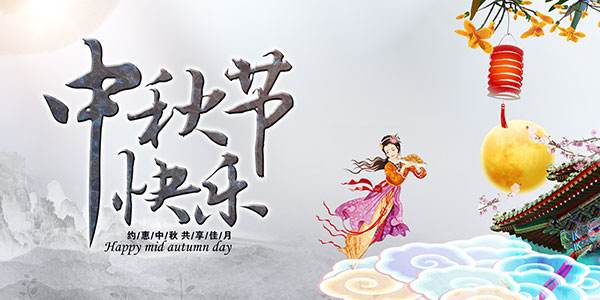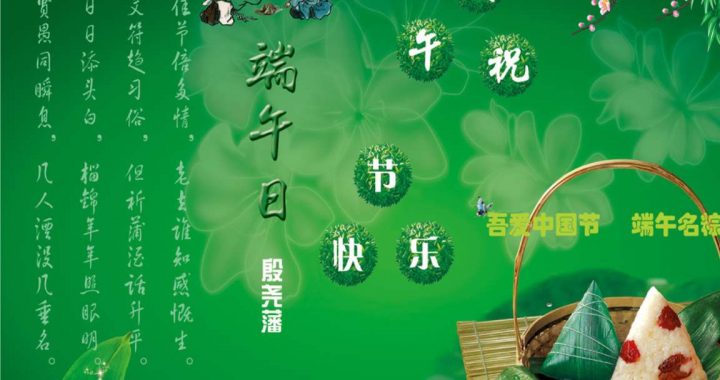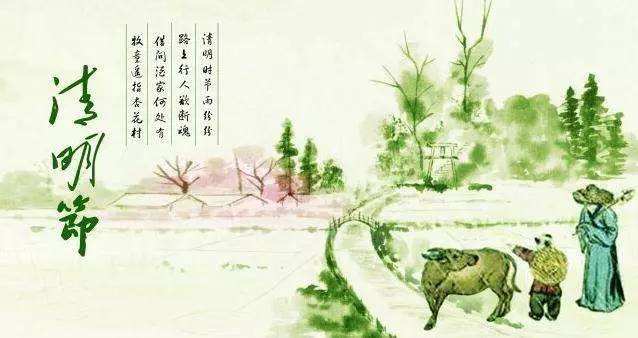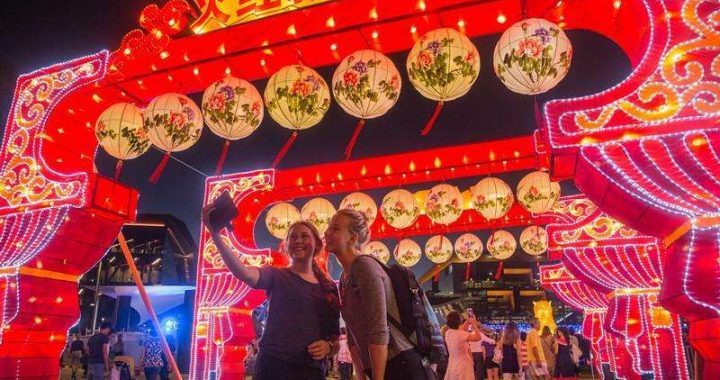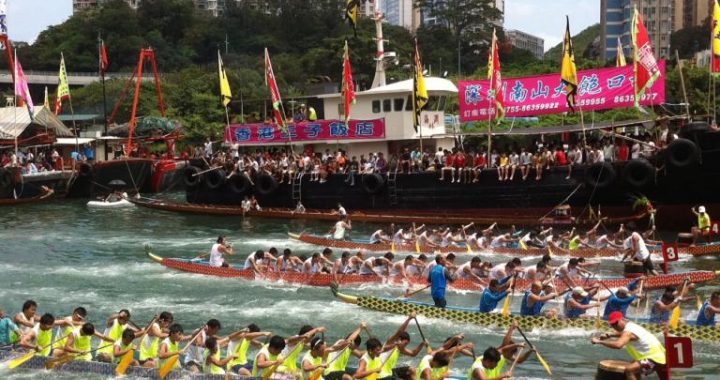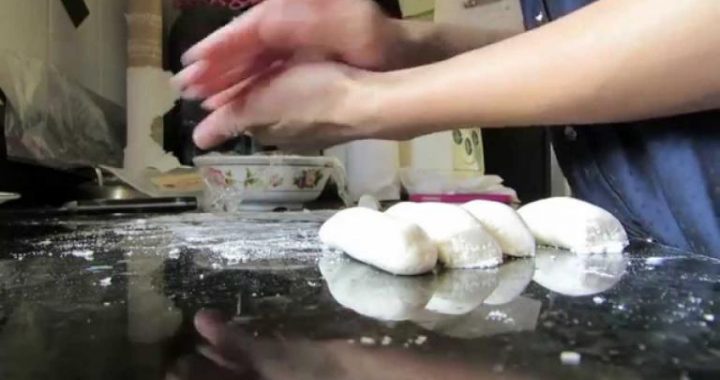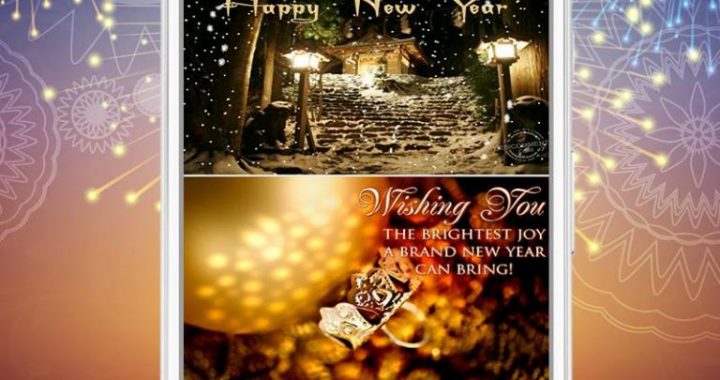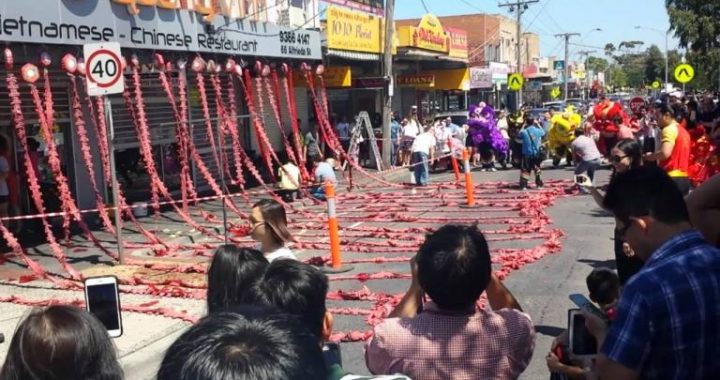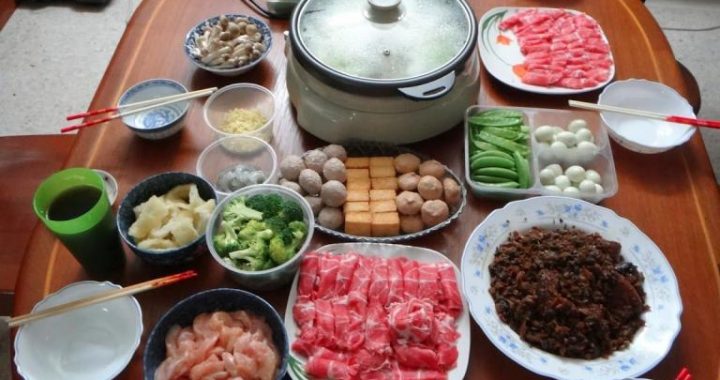Chinese Ghost Festival
8 min readIdeas about ghosts and gods are deeply rooted in the Chinese people’s belief system.Though people now already have a more ob jective understanding of human life and death under the influence of science, the influence of ideas about ghosts and gods still cannot be completely eliminated in the Chinese people’s deep psychologies, folk customs and life. The Chinese people think that the world people live in is jointly inhabited by people, ancestors, ghosts and gods and that there are dwelling places of ghosts and gods in villages and residences. Ghosts and gods have a double character. Whether they are good orevil and how they influence people’s life are on the one hand related to the reasons why they became ghosts and gods and seek compensation in the world, and on the other hand related to the sacrifices they get from the world. Gods and ghosts are related to people’s life in complex and delicate ways but are not uncontrollable. To handle people’s relationships with ghosts and gods is to adjust real life itself. People treat ghosts and gods very carefully, either negotiating with them for settlement or intimidating them through confrontation, but more often offer sacrifices in exchange for peace. In Chinese festivals, there are abundant such festival customs adjusting people’s relationships with ghosts and gods.
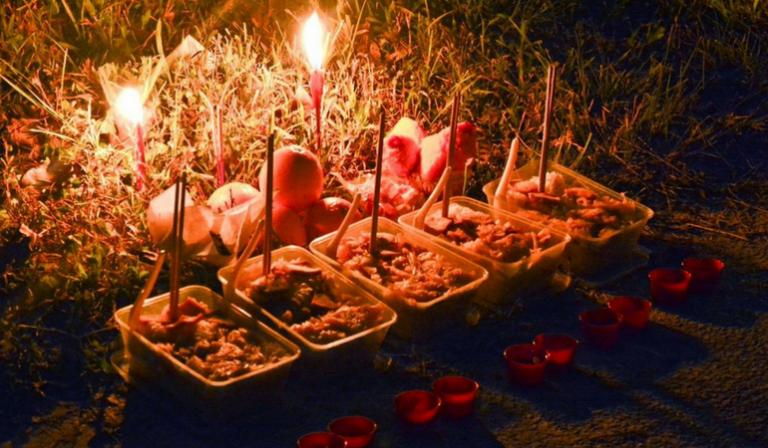
The 15th day of the 7th lunar month is an important festival for handling the Chinese people’s relationships with ghosts and gods. It is the “Ghost Festival”established by the convergence of Buddhism, Taoism and nongovernmental forces. Taoists call it the Zhongyuan Festival, Buddhists call it the Ullambana Festival, and there are more folk names for it such as the Ghost Festival, the Middle of the 7th Lunar Month Festival, theMid-month Festival, the Underworld Festival, the Watermelon Festival, the Shigu Festival, the Hemp and Grain Festival and the River Lantern Festival. Middle of the 7th Lunar Month Festival periods are different in various regions and ethnic groups. Though customs are also different, they mainly focus on offering sacrifices to ancestors and releasing souls from the purgatory. The Zhongyuan Festival period is the 15th day of the 7th lunar month inmost areas, the festival period includes the 141h day and 15th day of the 7th lunar monthin some areas, and the festival falls on the 161h day in some areas. In other areas, it lasts three to seven days from the 7th day or 13th day of the 7th lunar month, ie. holding ceremonies on the 7th day or 13th day of the 7th lunar month to take ancestors’ ghosts home and sending them back on the 15th day of the 7th lunar month. In some areas such as Hong Kong, Macau and Taiwan, sacrifice activities with the 15th day of the 7th lunar month as the core last as long as one month, and the specific dates of activities of delivering all from torment are not the same in different areas. Such activities take place one after another. People in these areas think that the 7th lunar month is the ghost month. The gate of hell opens on the first day and closes on the last day. The entire month is a period for resettling all ghosts.
The themes of the Festival of the Dead Spirits are mainly offering sacrifices to ancestors and releasing souls from the purgatory, and its main customs include activities such as offering autumn sacrifices, dedicating new sacrifices, feeding starving ghosts, releasing river lanterns and delivering all from torment. It is said that on this day the gate of hell opens, releasing all ghosts. There is a folk proverb,”On the 15th day of the 71h lunar month, ghosts go everywhere.”According to folk sayings, souls do not perish after people’s death, those having offspring go home to accept the offspring’s worship, and those having no offspring are likely to drift and do harm. On the 15th day of the 7th lunar month, people mainly hold two main worshipping activities. One is Ullambana assemblies in temples, villages or neighborhoods. Every year, some communities’ prominent personages respectfully invite Buddhist monks to hold religious ceremonies and deliver all dead souls from torment, set up sacrificial altars, and hold public memorial ceremonies to offer sacrifices to drifting ghosts. The other is offering sacrifices to ancestors on the basis of families, worshipping them according to rituals, and holding family banquet and privatememorial ceremonies sometimes. The general procedure is: wine is poured out three times for ancestors to drink; then all family members have dinner together; after sunset, people go to a secluded place beside a river or pond with firecrackers, joss paper, joss sticks and candles, scatter lime on the ground to form a circle representing the forbidden area, then pour off porridge, burn joss paper and set off firecrackers in the circle to respectfully send their ancestors back to the “underworld.”Therefore, in the folk society, the 15th day of the 7th lunar month is actually a sacrifice festival centering on ancestor worshipping in the form of family reunion activities.
The emergence and prosperity of the Festival of the Dead Spirits had complex historical origins and unique formal characteristics. According to ancient Chinese people’s thought, people have souls and souls never perish. People’s death is only souls’ entry from the world to the underworld. The two are not clearly separated, and the living and the dead often carry out dialogue and communication in special sympathetic ways. Living people offer sacrifices to the dead and allow the latter to live well in the underworld, while the dead also bless living people imperceptibly. Thus, they have established a stable mutually beneficial relationship. Such belief in souls is also the fundamental driving force for the Festival of the Dead Spirits. Besides, ancients handed down the custom of offering autumn sacrifices to ancestors. The 7th lunar month happens to be the time when new rice is harvested.

Letting ancestors taste fresh food that has just maturated at this time to express gratitude for their blessings is also in conformity with the requirements of the Confucian filial piety culture and caters to the folk concept of ancestor worshipping. The development of Buddhism and Taoism added new meanings to the 15th day of the 7th lunar month. Taoists call the 15th day of the 1t lunar month, the 15th day of the 7th lunar month and the 15th day of the 1oth lunar month when the moon is full Shangyuan, Zhongyuan and Xiayuan respectively, marking the birth of the Heaven God, the Earth God and the Water God, and thus the three festivals for the Heaven God’s blessing, the Earth God’s pardon and the Water God’s elimination of bad luck emerged. The 15th day of the 71h lunar month is the birthday of Lord Qingxu, the Earth God. It is said that that the Earth God comes from heaven for investigation, determines good and evil people in the world and pardon those who have committed wins. Because the Earth God is in charge of affairs of ghosts, gods and the nether world, Taoists read scriptures and deliver all ghosts from torment on this day,while people who cherish the memory of their ancestors also offer sacrifices to the Earth God and pray for blessings for the dead on this day.Because dead souls wander in the world in the Zhongyuan Festival period,scriptures need to be read to deliver them from torment.The Taoist saying about the Earth God’s pardon has become a major support for people to offer sacrifices to ancestors and comfort lonely souls on the 15th day of the 7th lunar month.The story of Mulian’s rescue of his mother is recorded in Buddhist scriptures.
Accordingly,Buddhists held Ulambana assemblies on the 15th day of the 7th lunar month to remember ancestors,offer sacrifices to lonely ghosts and save ghosts suffering in hell.
This conformed to people’s concept of loyalty and filial piety in that period,and also strengthened the folk connotations of offering of sacrifices to their ancestors and appeasement of souls.
Though the 15th day of the 7th lunar month, the Tomb-sweeping Day and the 1st day of the 10th lunar month are collectively called the “three ghost festivals,”the Chinese nation’s awareness of gods and ghosts is displayed and fostered in a centralized and prominent manner on the 15th day of the 7th lunar month and is supported by diversified festival customs and activities.
Traditional ceremonious activities vary in different areas and mainly include: welcoming ancestors, offering sacrifices, sending ancestors back, taking off mourning clothes, arranging sacrifices, adding earth to grave mounds, making Ullambana basins and paper lanterns, burning joss money, offering sacrifices to the newly dead, giving alms, worshipping in the Zhongyuan Festival, setting up altars to hold religious ceremonies, reading scriptures, giving alms to lonely ghosts, releasing river lanterns, placing roadside lanterns, performing the Zhong Kui dance, burning paper boats, performing Mulian dramas, offering sacrifices to fierce ghosts, organizing city god tours, offering sacrifices to the Farmland God, the Grain God and the Earth God, etc. Related activities also include steaming flour sheep, flour people and flower buns, giving festival gifts, holding lantern shows, performing seasonal dramas, singing lantern songs, going boating, lighting up lanterns, etc.
Behind all the above festival customs and activities of offering of sacrifices to their ancestors and appeasement of souls is people’s spiritual need. People complete various ceremonial activities for ancestors, gods and ghosts on the 15th day of the 7th lunar month to harmonize the relationship between people and ghosts and at the same time adjust interpersonal relationships in reality and their inner world. The reason why these ceremonies could be inherited over time is that people placed eternal feelings and wishes of life in them and in thousands of years condensed them into a kind of group consciousness, which has become a certain holistic cultural appeal in China’s traditional rural society-for example, the Hong Kong Ullambana assembly is held from the 1st day of the 7th lunar month to the end of the 7th lunar month. This folk activity carried forward “offering of alms to lonely ghosts”in the Zhongyuan Festival in Chaozhou and Shantou to pray for peace and good luck for people living away from home, remember ancestors and mourn for the compatriots who went away from home to make a living and sacrificed their lives for Hong Kong’s prosperity. Later, it gradually became a rare opportunity for people from Chaozhou and Shantou to enhance their relationships as fellow townsmen, congratulate each other for the achievements made in the year and exchange successful experiences in their undertakings.
The meaning of the 15th day of the 7th lunar month as a cultural setting is not only rehabilitation and fatigue alleviation. It focuses on ad justing interpersonal relationships including the relationships between individuals and communities, and thus adjusts the relationships between people and ghosts and comfort individuals’ inner world. If there is no such cultural setting for adjustment of man’s mental activities in social life, community traditions can hardly last and man’s inner world will perhaps be filled with suspicion.
Therefore, the Festival of the Dead Spirits with an abundant and diversified connotations and a long history exerts very profound influence on the Chinese people’s views on religion and life, and is also an important window for understanding traditional Chinese culture.

